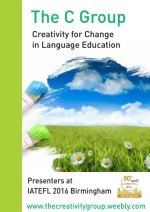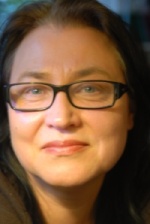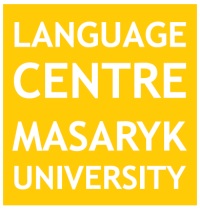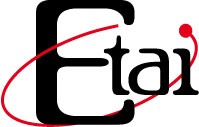Dear HLT Readers,
Welcome to the April issue of HLT. First some Pilgrims news… We hope you have been able to tap into the Erasmus+ grants, and that the reply you are waiting for will be positive. This will mean we will be able to welcome you in Canterbury in the summer of 2016. But remember there are also teacher training courses at Pilgrims in the autumn of 2016, and in the spring of 2017. There are also special group offers if your school or teachers’ association need a tailored course in Canterbury or in your country. Finally, you can attend our unique courses throughout the year. For more read Pilgrims News in the Course Outline section or just get in touch with us.
|

25th BETA-IATEFL Annual International Conference Teaching and Learning English: from No Tech to High Tech. How to Motivate Learners?,
4th-5th June 2016,
AND
Pre-Conference Event CLIL with Young Learners, 3rd June 2016,
Plovdiv University “Paisii Hilendarski”, Bulgaria
Plenary and featured speakers:
Christian Ludwig (PH Karlsruhe, Germany, IATEFL), Sandie Mourão, (Nova University, Lisbon, NILE), Irina Perianova (University of National and World Economy), Keith Kelly (Anglia School, Plovdiv; FACTWorld), Zhivka Ilieva (Dobrich College, Shumen University).
A Panel Discussion: To motivate learners, you need motivated teachers. What motivates you?
For more information check www.beta-iatefl.org
For further queries, contact beta.iatefl@gmail.com
|
Also there are other opportunities for us to meet; there will be the IATEFL Conference in Birmingham in April, the APPI Conference in Portugal end of April and many others. Please look up Pilgrims trainers or staff if you attend any of these events. We will be very happy to chat to you, brainstorm and make plans.
|

Join us at the IATEFL conference in Birmingham UK! The TTTJ speaker panel is on Wednesday 13th April. See you there!
The Teacher Trainer Journal has something to celebrate! The year 2016 marks our 30th Volume. Yes, we have been going for 30 years!
In 1986 we sent out our first, complimentary, 12 page, pilot newsletter to friends and contacts. We were hoping to establish a paper place where teacher trainers could talk to each other and take a peek at each others work. Thirty years later, with the same editor, we have a professional publication with an international readership and a huge resource bank of ideas, book reviews, and series of interest to teacher trainers, teacher educators and teacher mentors. If you would like to see what has been published so far and read some sample articles, or would like to subscribe to either the paper or on line version of the journal, take a look at our web site at:
www.tttjournal.co.uk
And why not come and join us for our birthday year!
Tessa Woodward
The Editor of The Teacher Trainer
Pilgrims Language Courses,
Suite 1B,
Orchard House,
Orchard Street,
Canterbury, Kent. CT2 8AP, UK
|
As for the C for Creativity movement, many C Group members /http://thecreativitygroup.weebly.com/ will be presenting at the IATEFL Conference. For more details read below. Also you can find suggestions on how to be an active C Group member in C Group Blog Post by Alan Maley. If you are interested in joining the group, you can do that for free.
|

The C Group members are giving a lot of sessions at IATEFL Birmingham this year!
The presenters are Nick Bilbrough, Szesztay Margit, Alan Maley, Malu Sciamarelli, Chris Lima, Jeremy Harmer, Jamie Keddie, Sarah Mercer,Daniel Xerri, Hanna Kryszewska, Lindsay Clandfield, Gloria Gil, Jill Hadfield, Dimitris Primalis, Chris Walklett, Joel Josephson, Andrew Wright, David Heathfield, among so many others! See all of them here.
|
This issue of HLT is hosted by Masaryk University, Czech Republic. Some time ago I met Libor Štěpánek at the University of Oxford during a summer school for teachers, and later I was invited to give some sessions to language teachers from Masaryk University. It was there and then that the idea of a whole issue of HLT being hosted by teachers at Masaryk University was born.
So as this April issue of HLT is hosted by Masaryk University, naturally it is exclusively devoted to teaching languages at university level. Most of the activities are aimed at adults at high language levels, but are adaptable to other contexts, too.
Now without further ado I hand over to Libor Štěpánek, Hana Reichová, Kateřina Sedláčková and Alena Hradilová, the host editors of this issue of HLT. I would like to thank the host editors for their hard work and for harvesting so many interesting contributions. I am immensely impressed by their expertise and dedication. Working with the host editors has been a real pleasure
Happy reading

Hania Kryszewska
HLT Editor
e-mail: hania.kryszewska@pilgrims.co.uk

Dear Colleagues and HLT Readers,
This special issue of HLT presents language teaching at the Masaryk University Language Centre, Brno, Czech Republic. The idea to dedicate one whole issue to activities of a university language centre came from a number of discussions on the variety of approaches to language teaching universities all over the world currently offer. We felt greatly honoured when Hania Kryszewska, the editor of HLT, came with a suggestion we could host this issue. We felt privileged and happy but also hesitant at first. We knew it could be a great opportunity to showcase our good practices but it was definitely going to be a challenge for the whole Centre at the same time. So, we opened a discussion and were extremely pleased to meet genuine enthusiasm and strong support from our staff for sharing ideas. This positive attitude to sharing may come from their recent positive experience with organising two conferences. The first one, the Sharing Innovations, Research, Methodology and Best Practices Conference (http://slideslive.com/cjv/language-centres-in-higher-education-2015) attracted more than 300 participants from 25 countries. An active exchange of ideas with so many great teachers from around the world encouraged our colleagues not only to see the potential in connecting language teaching and language research (which often develop in isolation from each other), but also to share their views in a written form (www.cjv.muni.cz/cs/casalc-review-115-16/) at an international forum. The second conference, CZKEy (https://slideslive.com/cjv/klic-k-cestine-jako-cizimu-jazyku) focused on Czech as a Foreign Language and was accompanied by an experience of a different kind: a nationally recognised outcome, a new multilingual website (http://mluvtecesky.net/en) for learning Czech language. Those engaging events may explain why our teachers when asked if they would like to share more ideas for a special issue of HLT, their answer was a resounding yes.
Our aim here is to demonstrate and debate a range of innovations in and a variety of approaches to language teaching in a university setting, but before we introduce our texts, we would like to give some context. The Masaryk University Language Centre (www.cjv.muni.cz) is the largest language centre in the Czech Republic. We provide language-focused services and support to Masaryk University and enhance international collaboration and continuous exchange of knowledge, ideas and information on a worldwide scale. Today, our hundred staff members work with 10,000 students each term; we teach languages for academic and specific purposes in English, French, German, Spanish, Russian, Czech for foreigners and Latin and offer courses in Chinese, Arabic, Swahili and other languages for general purposes. For this issue, we have selected articles that could show the broad scope of the Masaryk University Language Centre focus of attention, our learning experience from the past, plans for the future, and also experimental and innovative ideas with potential to collaborations. With the emphasis on variety in mind we have chosen diverse topics for different sections of HLT, so that the major and short articles supported by theoretical background could be connected to the practical examples of activities in the old exercise and lesson outline sections.
The major articles show areas which are in the centre of our innovative efforts. In the first paper The Impact of English Autonomously: Students' Perceptions, Lenka Zouhar Ludvíková discusses autonomy and individualisation of learning processes from the students´ perspective. Lenka´s findings are based on research conducted on an English Autonomously Course that has been developed with invaluable help of our colleagues from the University of Helsinki Language Centre whose experience and expertise in running autonomous language courses has been our great inspiration. The second paper Videoconferencing in English for Law Courses: Cooperation and Politeness Principles Revisited written by Alena Hradilová is based on decade-lasting original research in the use of videoconferencing (VC) for language teaching purposes. Our first VC courses date back to 2005, when teams of Brno and Aberystwyth (UK) universities began to experiment with this concept. The popularity of VC has grown and today the Masaryk University Language Centre has an experience with co-taught VC classes in the UK, Finland, Germany, Sweden, Canada, USA and China, some of which have been running on regular weekly basis. In this particular paper, Alena analyses situations in her courses at the Faculty of Law and her aim is to explain why attention to certain pragmatic issues in teaching English via VC has been identified as really useful. In the third paper Graves in Practice: Innovating the English for Laboratory Technicians Course at Masaryk University, Ladislav Václavík considers a specific approach to innovations of courses for specific purposes. The paper provides a deeper insight into course-design ideas of Kathleen Graves and their application to practice. Ladislav focuses on three areas: syllabus, materials and teaching approach, and highlights shifts of attention from the teacher/teaching process to the learners/learning process. The fourth paper The Possible Selves in a Global Coursebook authored by Jana Kubrická deals with identities portrayed in EFL textbooks and analyses how identifying the “possible selves” offered to learners in an EFL coursebook can constitute a part of motivation for learning. It presents textbooks as results of negotiations of complicated power relations among ethnic, class, gender and other social groups and provides understanding to how representation of the target community contributes to learners’ experience and construction of identity in a foreign language.
The text in the Jokes section entitled To Laugh or not to Laugh... presents a collection of student mistakes in translations gathered by Silvie Bilková at the Faculty of Economics and Administration. Our teachers have decided not to cry and lament over them but do the exact opposite: laugh and use their great learning potential.
The Short Articles section addresses a range of approaches to language teaching that do not have to be necessarily supported by in-depth research. The Collaborative, Content & Language Integrated, and Problem-Based Learning of English: Development and Evaluation of an Interdisciplinary Language Course for Science Students article discusses work of Robert Helán, Hana Němcová, Markéta Kovaříková and their team, who developed and organised an interdisciplinary course for science students. Radim Herout in his text From the Classroom and Back: How to Engage your Students in Language Learning When the Lesson Is Over shares his experience with the use of Google Classroom, and its successful application as a tool that triggers a new impetus to language learning outside of his classes. The importance of peer-review and peer assessment is highlighted, and online and poster-on-the-wall strategies for presentations are offered in Presentation Abstracts as a Tool for Student Motivation in ESP Classes, in which Barbora Chovancová and Štěpánka Bilová deal with a topic of active involvement of students in their language learning. Martina Šindelářová Skupeňová, an ELTon 2010 winner, considers literature a great tool for language learning and presents 5 Reasons to Use Literature in (English) Language Classes (of any Level) with the aim to offer some means to overcome problems when using literary texts for language teaching purposes. The Humanizing Teaching and Learning with an Expert Help paper discusses the experience of Eva Čoupková and Vojtěch Kejzlar with language teacher-doctoral student collaboration and describes preparation a task/problem based activities for English for Mathematics courses. And finally, Latin as a Language for Specific Purposes: Its Development and Current Trends presented by Jozefa Artimová and Libor Švanda provides a valuable insight into the history as well as current developments of teaching practice of a non-spoken language.
The Corpora Ideas section offers a text It's All About Data: Students of Science Meet Language as Data and Gain a Skill for Life by James Thomas, another ELTon 2010 winner, that deals with practical issues of using corpora in language teaching. James mentions some obstacles students may face but also demonstrates how students can be guided towards better understanding and use of a language with the use of corpora.
The Lesson Outlines section contains six texts on language lessons that can be broadly divided into three areas focusing on vocabulary practice and definitions, making good starts, and soft skills and creative approaches. In Can You Outsmart Your Smarts?, Eva Trumpešová-Rudolfová presents a session on how to become a better language learner, It is based on students finding out about their own strengths and weaknesses in learning and trying to come up with ways to consciously work with them. In the Flying Eggs seminar, Libor Štěpánek shows a possible way to turn a classic team work activity into a language learning session. In the Photo Law Stories: Civil and Criminal Procedure Vocabulary Practice, Štěpánka Bilová, Radmila Doupovcová and Barbora Chovancová focus on developing students´ speaking skills and specific vocabulary practice. The lesson is based on creative interpretation of pictures and promises fun and enjoyment that goes hand in hand with effective vocabulary practice. Jitka Žváčková is Animalising Language Teaching in her multilingual lesson for students who are interested in learning more about idioms related to animals and in comparing different languages to one another. Getting Everyone´s Feet Wet in an ESP/EAP Course is a text by Radomíra Bednářová and Jana Kubrická. They describe an introductory lesson for English for Specific Purposes or English for Academic Purposes (ESP/EAP) that tackles the question of how to make an effective start. It explores basic terminology of scientific disciplines, examines students´ perceptions of the disciplines´ relevance and makes them aware of their potential scientific career preferences. Finally, Hana Katrňáková offers Series of Micro-tasks Leading to a Successful Academic Presentation and Formal Summary, in which a set of chained micro-tasks helps students present an academic topic, deal successfully with questions and increase audience attention towards the presentation.
Our student voices can be seen as a kind of attachment or a postscript to our major articles section. This Discoveries on Learning English Differently text by Eva Trumpešová-Rudolfová is a collection of extracts from final reflections by students of the English Autonomously course that is organised for students who need to improve their English but feel the need to make the decisions about their own learning themselves.
The Old Exercise section contains six practical activities that can be easily used or adapted to different environments. In Getting to Know Each Other: Icebreakers in ESP (or Elsewhere) Štěpánka Bilová, Radmila Doupovcová, Barbora Chovancová and Hana Němcová present a collection of various types of short ice-breakers that can be picked by teachers according to their personal preferences or individual teaching styles. Curious Animal Law Stories: Criminal Procedure Vocabulary Practice is a paper, in which Veronika de Azevedo Camacho offers short humorous texts about animals brought into court with the aim to make the process of acquiring the legal vocabulary more enjoyable. The Image and Political caricature in French for Lawyers Classroom approaches the language for legal purposes from a different perspective. Kateřina Sedláčková proposes an original exercise where the image is used as a basic tool to make learners talk. Ladislav Václavík, the author a major article, provides a practical insight into his work and shares two exercises as variations to the usual ways to introduce and practice technical terms and their definitions in his text How to Deal with Technical Terminology in the Course of English for Laboratory Technicians. Monika Ševecková's “Making Studying Smarter” deals with a set of playful activities for teachers who wish to inspire their students and nurture their love for foreign languages. Monika presents ways of working with various kinds of texts aimed at developing reading techniques in the course of language practice. And finally, Eva Čoupková offers a creative and engaging way to work with definitions and defining skills in her Taboo Words: Practice Definitions and Defining text.
The the Book Preview section reviews The Study Skills Handbook by Stella Cottrell. Eva Trumpešová-Rudolfová recommends this book for language teachers who are looking for tips and practical tools to make their teaching more learning centred.
Lastly, the Poems section demonstrates real use of poetry in our classes. The Five-minute Poetry consists of poems written by anonymous students of English Based on Literary Texts Course. For their creative writing, students were inspired by a UNESCO protected masterpiece of modern architecture in Brno, The Tugendhat Villa, and its description in Simon Mawer´s The Glass Room novel.
Bringing the papers together for this special issue has been an exciting extension of the Masaryk University Language Centre everyday work. We greatly appreciate that texts presented here have been authored by teachers conducting research or exercising self-reflexion on their own practices, exposing their own struggles, suggesting alternative ways of being a language teacher and offering insights into how they think about themselves, their students and their work. We hope their ideas can be useful to your practice and can serve to prompt further discussion on language teaching.
We wish you an enjoyable and inspiring reading.
Libor Štěpánek, Hana Reichová, Kateřina Sedláčková and Alena Hradilová
Host Editors
|

GlobELT: An international conference on teaching and learning English as an additional language (GlobELT 2016 Conference)
in Antalya, Turkey on 14-17 April 2016
Credentials
The conference is organised under the supervision of scholars from Hacettepe University (Turkey), ELT Department in collaboration with INTESOL Turkey and Informascope. The GlobELT conference aims to provide a large number of scholars and presenters with a friendly stimulating atmosphere where they can exchange ideas and get constructive feedback on their work.
Keynote speakers
We have been fortunate to secure four important keynote speakers: David Little, Norbert Schmitt, Derin Atay, and Tony Green, who are all prominent scholars in our field. Invited speakers, we believe, will turn the whole event into an inspiring experience. As well as our international keynote speakers, we also hope to host many local and international ELT researchers at our annual event.
Venue
The conference will be held at the beautiful WOW Kremlin Palace Hotel in Antalya, Turkey. We believe the venue and the timing of the event is as charming as the idea of sharing and disseminating our work. The conference hotel is a gorgeous five star luxurious resort, operating on an all-inclusive basis for our presenters' joy and comfort. Antalya and the region should also be extremely pleasant and fragrant in this merry month of April. We believe our participants will be able to find plenty to do in their free times.
Publication of papers
We truly hope to provide a far-reaching outlet for our participants' work. We are proud to inform you that we have already published the proceedings GlobELT 2015 conference in Elsevier's Procedia - Social and Behavioral Sciences (available at http://www.sciencedirect.com/science/journal/18770428/199). We are once again pleased to announce that we have now signed a publication contract with Elsevier's Procedia - Social and Behavioral Sciences for the inclusion of our conferences proceedings as a Procedia volume. All presented and proofread/edited manuscripts will be published in a special Procedia Volume.
Alternatively, we have two supporting journals that are willing to give priority to full length papers originating from GlobELT conference. International Online Journal of Education and Teaching (www.iojet.org) and Eurasian Journal of Applied Linguistics (www.ejal.eu) have already expressed intention of support in our efforts of disseminating research findings and ideas to be presented in the course of our GlobELT 2016 Conference if, of course, our delegates should choose them as an outlet for their work.
We sincerely hope that this conference will create a friendly occasion for all of us to share perspectives and research findings from a wide variety of educational contexts. We also dearly value possible friendships and partnerships made and insights gained at the conference and hope they will go beyond your participation in the conference, leading to better understanding and appreciation of our profession from an international stance. We, therefore, are looking forward to welcoming and hosting you at WOW Kremlin Palace Hotel, Antalya, Turkey on April 14-17, 2016.
More at: www.globeltconference.com
|
|

We are pleased to invite you to the 7th International ETAI Conference to be held in Ashkelon, Israel from July 4-6, 2016. The theme of the conference is "Engage Enhance Energize," and we expect to welcome presenters and delegates from all over Israel and around the world.
We are especially proud to be hosting two presidents! Andy Curtis of TESOL and Marjorie Rosenberg of IATEFL will both be our honored guest speakers, heading up an impressive list of featured presenters and workshop leaders.
The venue is a state-of-the-art designated conference center, and we are excited to be setting the precedent this year of holding our conference in the ancient-modern port city of Ashkelon, the first time this event will be held outside the capital, Jerusalem.
Furthermore, an international conference on academic writing (IFAW) is being held in Tel Aviv the previous week. Coming for our conference is a great opportunity to visit the Holy Land, relax on the beautiful coast of the Mediterranean and develop professionally.
Please pass this message to your colleagues.
Link to the conference page: www.etai.org.il/international-2016/
We at ETAI are looking forward to having you with us this summer in Ashkelon!
The ETAI Internaional Convening Committee
|



|